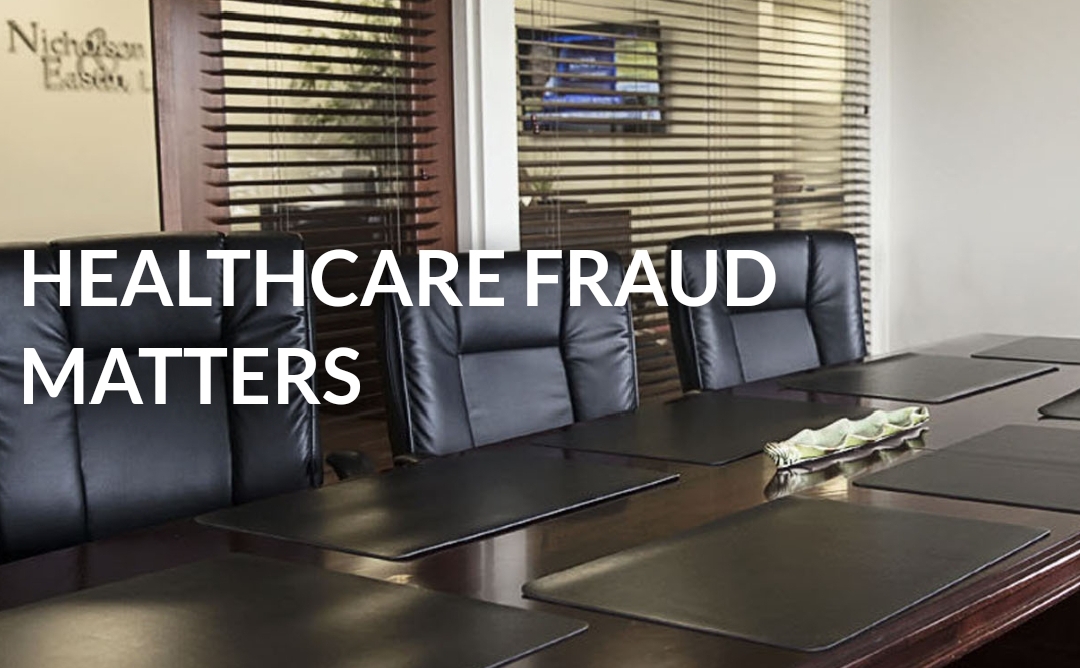Medicare Fraud Continues to Increase in America
Medicare Fraud is a difficult issue in America, with citizens losing more than $100 billion per year to government medical care and Medicaid extortion, as per gauges from the Public Medical Care Hostile to Extortion Affiliation. The extortion runs the gamut: charging for unapproved Coronavirus tests, fake charging for wheelchairs, supports, and other clinical hardware, hereditary testing misrepresentation, home medical services charging, and a large group of different plans. Specialists say fraudsters have gotten more bold lately, as Washington has quickly given out trillions of dollars in coronavirus help reserves and other aid in light of the pandemic.
Medicare Fraud and Medicaid programs are, by and large, shamelessly designated by modern hoodlums. The assessed yearly misrepresentation tops $100 billion; however, specialists say it’s logically a lot higher. A sentenced fraudster tells CNBC it’s not difficult to take from the medical services programs since there aren’t an adequate number of specialists to stay aware of the different plans. The fraudsters have become more imaginative and refined in their strategies, making it hard for specialists to identify and forestall extortion.
The Communities for Government medical care and Medicaid Administrations characterize Medicare Fraud as intentionally submitting misleading cases to inappropriately acquire bureaucratic medical care installments, as well as purposely requesting, getting, offering, or paying compensation (e.g., payoffs, pay-offs, or discounts) to prompt or reward references for things or administrations that are qualified for repayment. Although the degree of extortion in federal health care is obscure, given the huge size of the program, even a little level of misrepresentation presents critical dangers to the respectability of the program.
The fake plans prompted more than $2 billion in federal medical care and Medicaid misfortunes in 2018. More than 600 respondents were charged. Medicare Fraud is common to the point that the US government really saves $1.55 for every dollar put into battling misrepresentation. The US government has found multiple ways to battle federal health insurance misrepresentation, including expanding the quantity of specialists and investigators, further developing information examination, and carrying out new innovations to identify extortion.
Examples of Medicare fraud?
The fraudsters have become more imaginative and complex in their strategies, making it challenging for specialists to distinguish and forestall misrepresentation. Here are a few instances of federal health insurance misrepresentation:
Charging for unapproved Coronavirus tests: Fraudsters charge Medicare Fraud for Coronavirus tests that are not endorsed by the FDA or are not restoratively essential.
Fake charging for wheelchairs, supports, and other clinical hardware: Fraudsters charge government health care for clinical gear that isn’t required or not conveyed to the patient.
Hereditary testing misrepresentation: Fraudsters charge federal health care for hereditary tests that are not therapeutically vital or not arranged by a doctor.
Home medical care charging: Fraudsters charge Medicare Fraud for home medical services benefits that are not required or not given.
Payoffs: Fraudsters offer payoffs to doctors in return for references.
These are only a couple of instances of the many kinds of Medicare Frauds that exist. It is essential to be careful and do whatever it takes to forestall federal Medicare Frauds.
Looking for a Medicare Fraud Attorney in Florida?
Assuming you’re confronting issues connected with Medicare Frauds in Florida, it is vital to look for legitimate help. Our accomplished group of lawyers has practical experience in Medicare fraud cases, giving master direction and customized representation to safeguard your freedoms. Contact a dedicated Medicare fraud attorney in Florida from today. Website: https://nicholsoneastin.com/practice-areas/government-investigations/healthcare-fraud-matters/
What is the punishment for committing Medicare fraud?
Medicare Fraud is a serious felony that happens when an individual purposely submits fake cases or makes distortions of truth to get a bureaucratic medical services installment to which they are not entitled. Government medical care misrepresentation additionally includes purposely getting, requesting, offering, or paying remuneration to instigate or compensate references for administrations or things repaid by bureaucratic medical services programs.
Disregarding any of the regulations that give punishments to government medical care misrepresentation and misuse can bring about delinquency of cases, common financial punishments, prohibition from all bureaucratic medical care programs from here on out, and common and criminal responsibility. The punishments for Medicare Fraud can be extreme and incorporate detainment, fines, and avoidance of partaking in any administrative medical care program.
For instance, the Misleading Cases Act (FCA) puts a common obligation on anybody who intentionally submits or makes the accommodation of bogus or fake cases to the US government. Common punishments for a FCA infringement can incorporate up to multiple times the harms supported by the public authority due to the bogus cases, in addition to punishments up to $22,927 per infringement. Violators likewise can have to deal with criminal damages that incorporate detainment or potentially fines.
The Counter Payoff Resolution (AKS) makes it against the law to intentionally and adamantly offer, pay, request, or get reserves straightforwardly or by implication to instigate or remunerate patient references. It is likewise wrong to create a business that includes anything or administration that is reimbursable by a government medical care program. Any time a supplier offers, pays, requests, or gets unlawful compensation, it is an infringement of the AKS. Criminal and authoritative punishments for AKS infringement can incorporate fines, detention, and prohibition from partaking in any government medical care program.
How can I report Medicare fraud?
Assuming you suspect that Medicare Fraud is being charged for something or administration you didn’t get or that your government medical care card or number was taken, you can report suspected fraud or maltreatment by utilizing the contact data underneath:
For supplier extortion or maltreatment in Unique Government Medicare (counting a fake case or a case from a supplier you didn’t get care from), call 1-800-MEDICARE (1-800-633-4227) or the U.S. Branch of Health & Human Services, Office of the Inspector General.
For supplier fraud or maltreatment in a government health care benefit plan or a federal medical care drug plan (counting a false case), call 1-800-MEDICARE (1-800-633-4227) or The Examinations Government medical care Medication Trustworthiness Project worker (I-MEDIC) at 1-877-7SAFERX (1-877-772-3379), or by US mail: Qlarant, 28464 Marlboro Road, Easton, MD 21601. Attn: I-MEDIC.
At the point when you call, have this data prepared:
Your name and federal health care number.
The name of the supplier that you’re detailing, along with any recognizing data you might have,.
The help or thing you’re addressing and when you, as far as anyone knows, got it.
The sum that government medical care supported and paid.
The date on your Medicare Summary Notice (MSN).
Safeguarding yourself from clinical wholesale fraud is likewise significant. In the event that you think you’ve been a casualty of clinical data fraud, you ought to contact the Government Exchange Commission (FTC) at 1-877-438-4338 or visit their site at www.identitytheft.gov
Finale:
All in all, Medicare fraud is a difficult issue in America, with citizens losing more than $100 billion every year to government medical care and Medicaid misrepresentation. The fraudsters have become more imaginative and modern in their techniques, making it hard for specialists to recognize and forestall misrepresentation. In any case, the US government has found multiple ways to battle Medicare Fraud, including expanding the quantity of specialists and examiners, further developing information examination, and carrying out new innovations to distinguish extortion. It means quite a bit to keep on being cautious and do whatever it may take to forestall government medical care extortion.
Nicholson & Eastin LLP highlights rising medicare fraud rates in America



